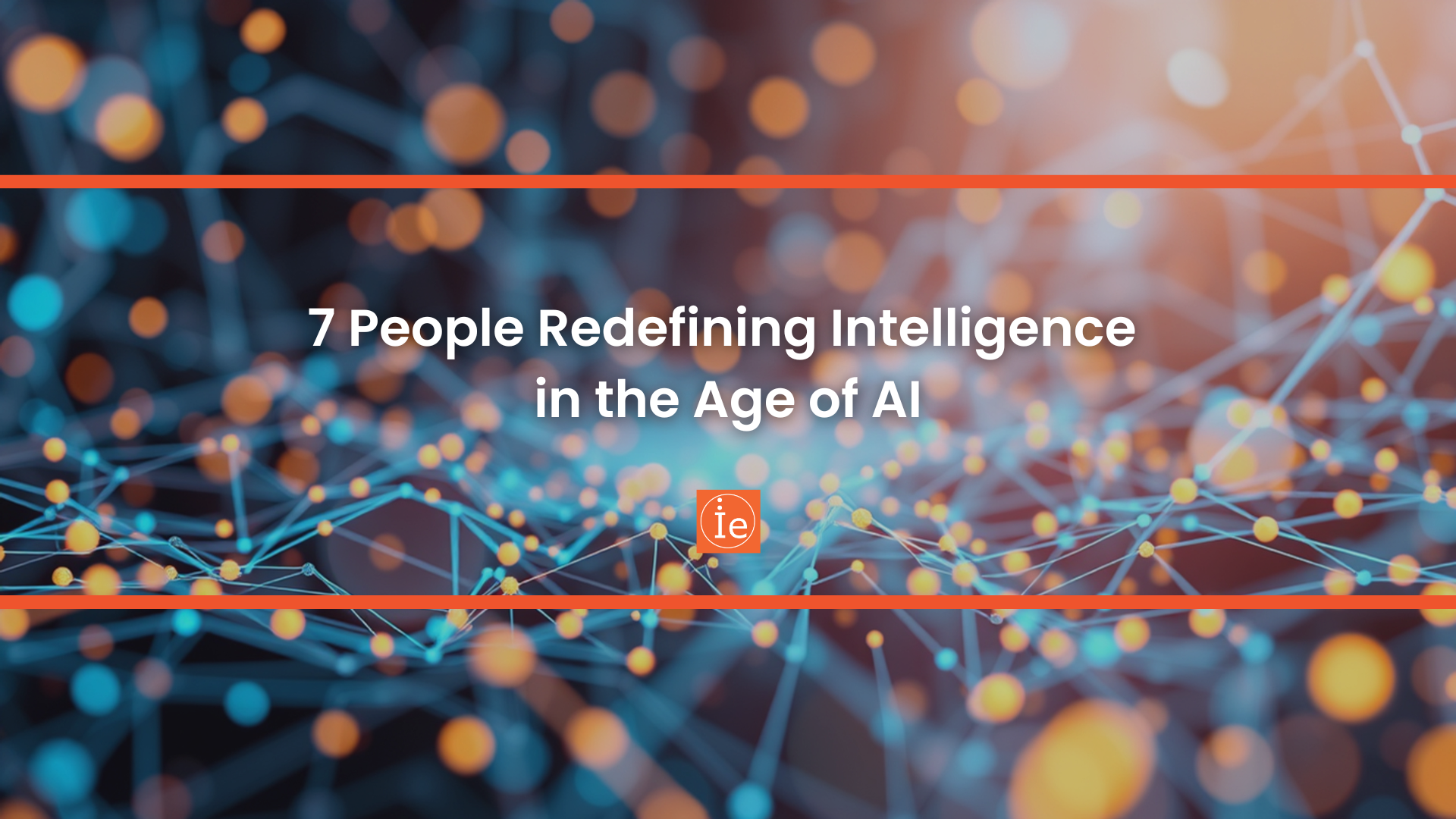7 People Redefining Intelligence in the Age of AI
For years, we’ve talked about artificial intelligence pitting humans and machines against each other, whether in the workplace or in sci-fi novels. While there’s still plenty to be wary of, that story is changing. Over the past six months, leaders at companies like Google, Apple, and Microsoft have been building systems that have the potential to improve accessibility and help humans flourish.
By weaving empathy and accountability into every layer, these innovators are building technology that serves as a collaborative extension of ourselves, allowing us to rapidly advance our current capabilities. Explore what it looks like when tech leaders embrace human-centric design and what it could mean for our future.
Angana Ghosh (Google)
When Angana Ghosh, Director of Product Management for Android Accessibility, talks about AI, she doesn’t start with data or model specs. She talks about visibility by digging into who technology sees and who it still misses. In May 2025, her team rolled out Gemini-powered updates that quietly changed life for people with low vision.
The upgraded TalkBack screen reader can now describe what’s in an image and even answer follow-up questions, like “What color is this?” or “What else is in the picture?” Chrome’s new Optical Character Recognition (OCR) feature also makes scanned PDFs compatible with screen readers. These seemingly small updates are revolutionary for people who rely on assistive technology. Ghosh and her team are making it easier for millions of people to participate fully in the digital world.
Related: Five Unsung Inventors Who Changed the World
Sarah Herrlinger (Apple)
At Apple, Sarah Herrlinger, Senior Director of Global Accessibility Policy and Initiatives, treats accessibility as a design ethic rather than simply a compliance line item. In May 2025, her team announced Braille Access, a feature that lets users read and write in Braille across iPhone, iPad, Mac, and Vision Pro. Herrlinger also championed new camera-based zoom and reading modes designed for users with low vision or attention challenges.
These shifts have the power to redefine intelligence. Technology used to act like a gatekeeper, forcing users to adapt to its rules. By making accessible adjustments, more people will be able to participate in meaningful ways online.
Natasha Crampton and Teresa Hutson (Microsoft)
Natasha Crampton, Microsoft’s Chief Responsible AI Officer, and Teresa Hutson, Corporate VP of Trusted Technology, are setting a new bar for corporate accountability in AI. Their 2025 Responsible AI Transparency Report lays out how Microsoft stress-tests every model before release, using capability “triggers” to decide when new oversight is required and deploying red-team simulations for real-world misuse.
By publishing their tools and criteria, they did something rare in tech: they made accountability visible. Crampton and Hutson also set a precedent for how organizations can embed ethics directly into product design. As Crampton notes, “We can’t separate innovation from responsibility. They must evolve together.”
Related: Meet Five Female Inventors Who Transformed Their Industries
Seungmin Seo (NIST)
Defining intelligence requires someone to measure it, and few are tackling that challenge more concretely than Seungmin Seo and his colleagues at the National Institute of Standards and Technology (NIST). His team’s GenAI Text Challenge Evaluation Plan moves past abstract accuracy scores to assess qualities people actually care about, such as truthfulness, fairness, and clarity.
Seo’s team is also teaching the world how to ask better questions about AI. These standards move the conversation from “How powerful is your model?” to “How safe, fair, and useful is it for people?” The initiative hints at a coming era where product launches will incorporate more qualitative data, such as human impact reports.
Related: Immersive Innovation: How AR and VR are Revolutionizing the Consumer Goods Sector (Part One)
Ian Hogarth (UK AI Security Institute)
Ian Hogarth, Chair of the UK’s AI Security Institute, thinks about AI like an ecosystem. It’s dynamic, complex, and it requires protection as it evolves. In 2025, he released a framework with the National Cyber Security Centre (NCSC) that applies standard vulnerability-disclosure practices to AI safeguard failures and jailbreaks.
This is a proactive move. Instead of waiting for breaches, NCSC is inviting researchers to find weak spots before any damage is done. In practical terms, he’s teaching companies to think like both builders and defenders. Hogarth calls this “security by curiosity.” According to him, a truly intelligent system doesn’t stop at processing inputs. It also anticipates and mitigates misuse.
Munmun De Choudhury (The OpenAI Well-Being Council)
When OpenAI announced its Expert Council on Well-Being and AI last October, the conversation about intelligence expanded into emotional territory. The council, which includes Munmun De Choudhury, David Mohr, Andrew Przybylski, and Tracy Dennis-Tiwary, advises the company on mental health, empathy, and user well-being. Shortly after, OpenAI released an addendum to its GPT-5 System Card showing how the model handles sensitive conversations such as grief, loneliness, and stress.
De Choudhury puts it simply: “AI should help people feel more human, not less.” These words highlight a shift toward building AI that understands emotional nuance without overstepping personal boundaries.
A More Human Kind of Intelligence
AI’s future won’t hinge on how clever the code is but on how well it serves people. The innovators profiled here are showing what that looks like in practice. These are the new faces of intelligence: engineers, researchers, and policymakers designing technology that learns not just from data but from human values. After all, AI can imitate language and logic, but not humanity. That’s still our domain.
Looking for more insights on innovation and creative leadership? Stay connected with Innovationedge as we continue to spotlight changemakers and share forward-thinking strategies for growth.

